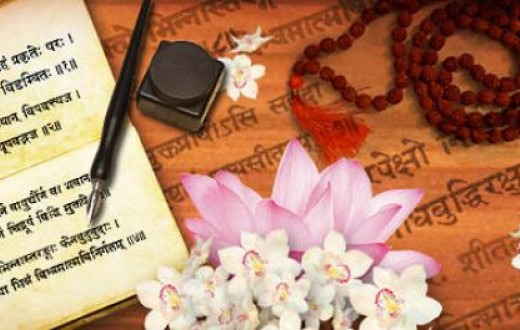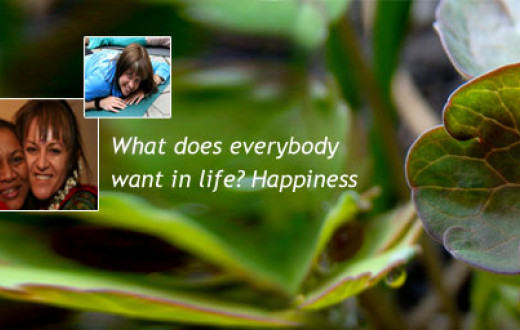Monday, 24. August 2009 Turkey
What H.H Gurudev Sri Sri Ravi Shankar said today:
'When action and meditation are balanced then life blossoms naturally'
India (Art of Living International Center, Bangalore), August 20:
How to live without expectations?
Sri Sri Ravi Shankar:
If you know that joy from expectations is lesser than unexpected joy, that is sufficient. You need not try to achieve this, it happens effortlessly.
What is atma (soul)?
Sri Sri Ravi Shankar:
Who is asking this? Because you have life, you are asking. Since you have a mind you are asking this question and since you have a body, the mind asks.
One way is neti neti ( I am not the body, I am not the mind). The other way is ‘I am all’ (I am the mind, I am the body, I am the life force). Atma (soul) is the ocean, the life force is the wave.
Who made this beautiful body? The atma has to create, sustain and destroy. Just like how the water becomes vapor, then forms a cloud. The cloud then gives rain. The power to move from the form to the formless is there in every cell.
How to attain moksha (liberation)?
Sri Sri Ravi Shankar:
Through knowledge. If there is bondage, there is liberation. To be free from ignorance you need knowledge. The mind should turn inward. Silence takes the mind inward and helps to recognize ‘Who am I’.
How to attain silence?
Sri Sri Ravi Shankar:
That is why you have come here. As your interest grows then silence deepens. Knowing what is permanent and what is changing is viveka (discretion). Thoughts are changing but the knowledge (learning) is with us.
In a shop you buy a vessel. The vessel is permanent but not the milk, or the rice which you fill in it. Houses will stay but the people change. The people who built the Tanjore temple have gone but the stones remain.
In our life some things are permanent - love, vairagya (dispassion) are like this. Knowing this difference is viveka.
What makes a habit good or bad?
Sri Sri Ravi Shankar:
If you see those who smoke, are they in bliss? No, but if you tell them not to smoke, their face shows anger and hatred. There is no joy in smoking but there is sorrow without it - this is a bad habit.
Those practices which bring short term effort but long term happiness are good practices. Knowing this is viveka.
It is said that women cannot study Vedas (scriptures). Why is it so?
Sri Sri Ravi Shankar:
At some point of time some selfish people said this. Some Brahmins made this mistake. Women from all castes can studythe Vedas. But you must convey it properly. Traditionally, if the rituals we follow are useful, then continue them. If they are foolish, drop them.
What is the importance of rangoli*?
Sri Sri Ravi Shankar:
It is our practice. Keep clean, take bath, and make a rangoli. Those who come to see you, even before they enter your home, they see something beautiful. The environment looks beautiful. Little ants and insects enjoy the food that is used to make the rangoli. Look at the villages where the practice is not there - the roads look messy. These little practices energize the body also.
Why is discipline so important?
Sri Sri Ravi Shankar:
Discipline brings freedom. When we have discipline in some areas, we have freedom in them too. Bhakti (devotion) is beyond this, it transcends this. You don’t need to practice discipline where there is devotion. You need discipline only for what is not close to your heart. You need discipline to exercise, not to play cricket. When we have a sankalpa (intention) and we do it, it is good for us. If we don’t do, nothing happens to God, only we feel the pinch sometimes.
Can mantras change what astrologers predict?
Sri Sri Ravi Shankar:
Mantras have power. It is good to chant. That is not to say that what astrologers say is not true. We should practice dana (charity), yagna (vedic ritual) as good vibrations come to us then.
What is karma? Why are some people happy, some poor etc?
Sri Sri Ravi Shankar:
You will understand the law behind all this, when you explore your depth.
How to make this life blossom?
Sri Sri Ravi Shankar:
Life blossoms in rest. Two things are important in life- when we are in Nivriti (meditation), we have to see everything as ok and believe that it is all being done by God and He is watching over. When we do this, strength, wisdom and devotion increase and then Pravritti (action) comes up automatically.
When we come to Pravritti and see fault in everything, then we can correct it but if the fault-finding tendency stays forever then we get frustrated. Thus we need a balance of both - ‘It is ok’ and ‘It is not ok’. We should also have the strength to correct what is not ok.
Pravitti is knowing that if it is not correct, we can and will correct it. The belief that everything is ok, will be ok in the future and ‘I am ok the way I am’ is Nivriti.
When Pravitti and Nivriti are balanced, then life blossoms naturally.
What is the purpose of dreams?
Sri Sri Ravi Shankar:
There are five kinds of dreams:
1. Dreams in which old experiences repeat in the consciousness.
2. The ones that display your desires and fears.
3. Intuitive dreams - that foretell what is going to happen.
4. The dreams which are not related to you but to the place where you are sleeping. For instance, if you are sleeping in China you may see dreams in Chinese.
5. This type is the mixture of all the other types.
99 percent of the dreams that you have belong to the fifth category, so it is wise not to give much importance to them. The wise believe this world itself to be a dream. Whatever we experience through the sense organs is the impression of the world on us. What you did a few hours ago is just like a dream in the present moment. It’s a memory. There is not much difference between a memory and a dream.
*Traditional colorful floor decorations




























